Suicide and post-traumatic stress disorder (PTSD) have become widespread issues within the U.S. veteran community. According to the 2019 National Veteran Suicide Prevention Annual Report, the most recent data available, an average of 16.8 veterans died by suicide each day in 2017. The report is compiled and published by the U.S. Department of Veteran Affairs.
While most people are aware of the problem — some even do push ups on social media or participate in other fitness-related activities to raise awareness — it takes significant action to reach those in need. Lone Star Warriors Outdoors is an organization dedicated to taking that action to make a difference in lives of veterans. LSWO provides veterans with shared experiences, an outlet, a network, and, in some cases, a new sense of purpose.
“This organization literally saved my life. I was in a dark place when Gill found me,” said Ian Rook, a former infantryman turned sheriff’s deputy. “I met Gill by chance, and he found out I was a vet and invited me to come out to one of the ranches during a veterans dove hunt. It changed my life — being around the guys and seeing that people actually cared about us was a big eye opener. No matter how bad it seems we’re not alone.”
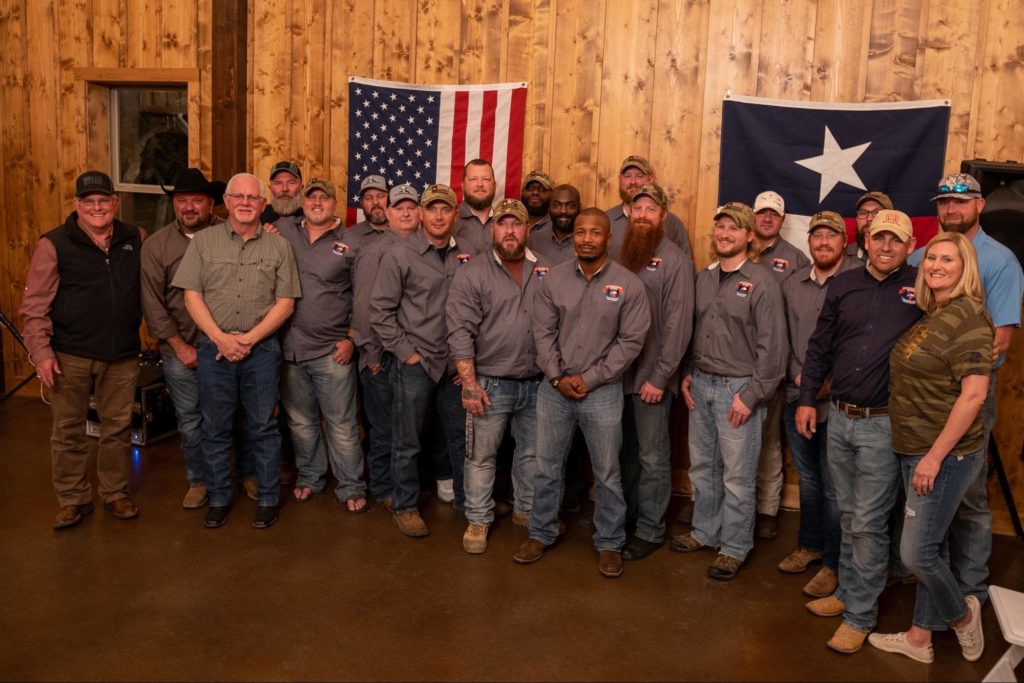
Veteran Chris Gill founded Lone Star Warriors Outdoors, a 501(c)3 nonprofit organization, with the mission to give back to combat-injured veterans and assist in PTSD recovery and veteran suicide. LSWO hosts several hunting, fishing, and other outdoor-related trips throughout the year.
In December, 18 veterans from around the U.S. were invited to San Angelo, Texas, for LSWO’s annual whitetail hunt. From the moment the veterans hit the ground they were welcomed, thanked, and treated like royalty, complete with speeches from city officials (including the mayor), a performance by the local high school band, and a banquet where the warriors were given tokens of appreciation. After the welcoming festivities, the warriors were off to their assigned ranches for three days of deer hunting.
The ranch owners who participate in the annual hunt with LSWO open their land, homes, and hearts to the veterans, often going above and beyond to ensure each participant feels at home and welcome. Without having to worry about the details, the warriors have a chance to unwind and connect with one another. The only thing required of the warriors is that they enjoy themselves and each other.
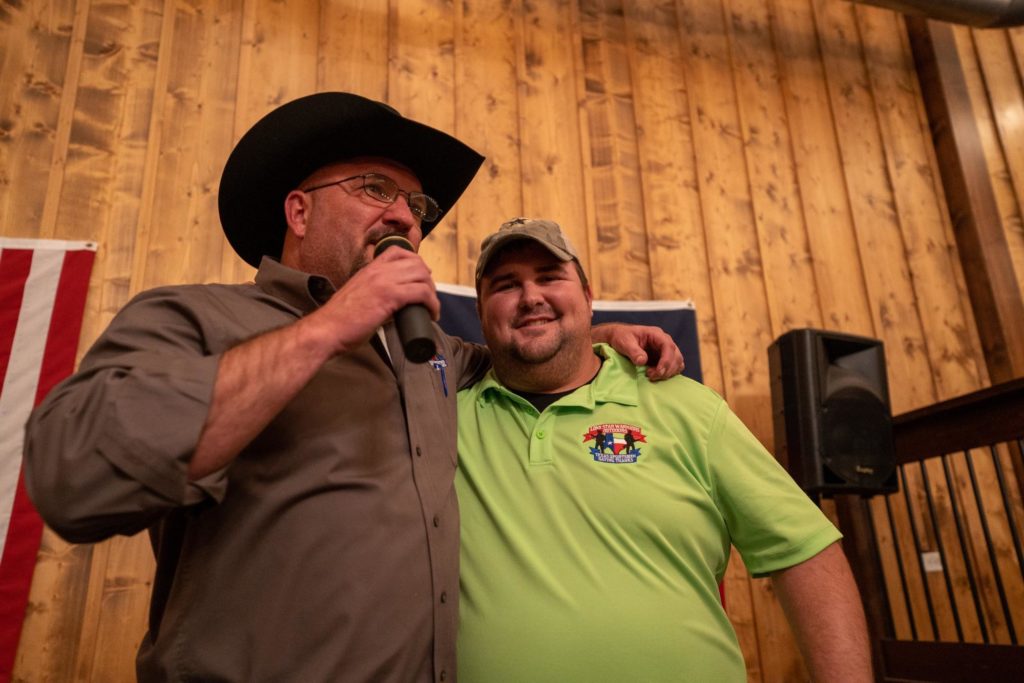
“These guys put themselves in harm’s way very unselfishly, and this is something small that we can do to show them our appreciation,” said Ryan Hayes of Cole Creek Ranch. “It’s amazing — four strangers spend five days on the ranch and are family by the time they leave.”
The first couple of days can be awkward for the warriors, but Gill solved that problem by inviting participants from past years to return as alumni.
“We aren’t a one-and-done organization — alumni are a critical part of helping the warriors feel comfortable and enjoying themselves,” Gill said. The alumni help keep things light and fun, engaging in everything from talking smack to instigating a game of cornhole to one-on-one conversations with warriors who might be having a hard time.
Aside from serving as ice breakers, the alumni also become part of the warriors’ network. Cole Creek Ranch had eight alumni at different times throughout the weekend hunt, creating the opportunity to meet and bond with 12 different veterans. Gill’s primary goal when inviting the alumni back was to strengthen the bonds they created on their trips and remind them that they are part of the family even when the hunt is over.
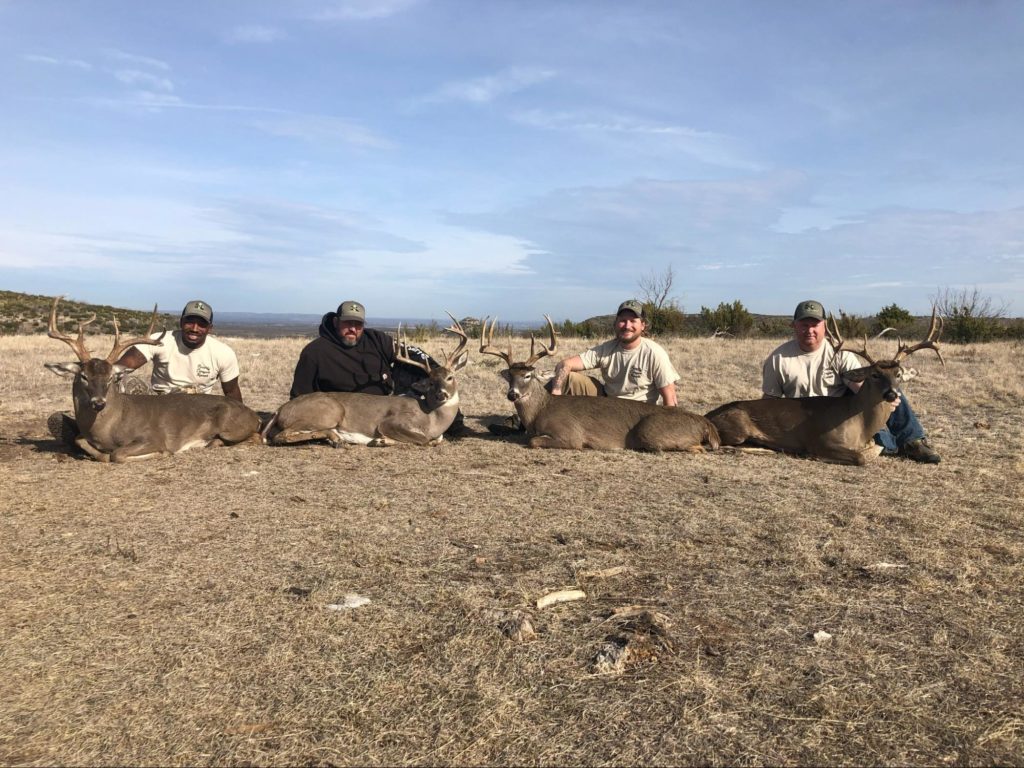
The ranches are where the magic happens and serve as the heart of what the organization aims to do — build relationships. Ask a veteran to tell you about conversations they had while pulling a four-hour tower guard rotation overseas, and you’ll get some pretty crazy stories; sitting in a deer blind overlooking the beautiful West Texas landscape isn’t much different. The quiet patience required while hunting provides a perfect landscape for reflection and sharing stories — the chance to disconnect from the distractors of the modern world and reconnect with your fellow man and nature.
While the annual hunt helps connect the veterans to one another, they also build relationships with the ranchers and other volunteers.
“I love the camaraderie and have made lifelong friends through helping with LSWO,” said Justin Lang, a volunteer and guide at Cole Creek Ranch. While many of the guides are not veterans, they have a deep respect for the military, and most of them plan time off in advance to be at the event every year. Lang is a supervisor at a family-owned construction company and has been using a week of vacation time to volunteer with the deer hunt for seven years.
“This is an event I look forward to every year,” Lang said. “It’s my chance to give back to those who have sacrificed so much.”
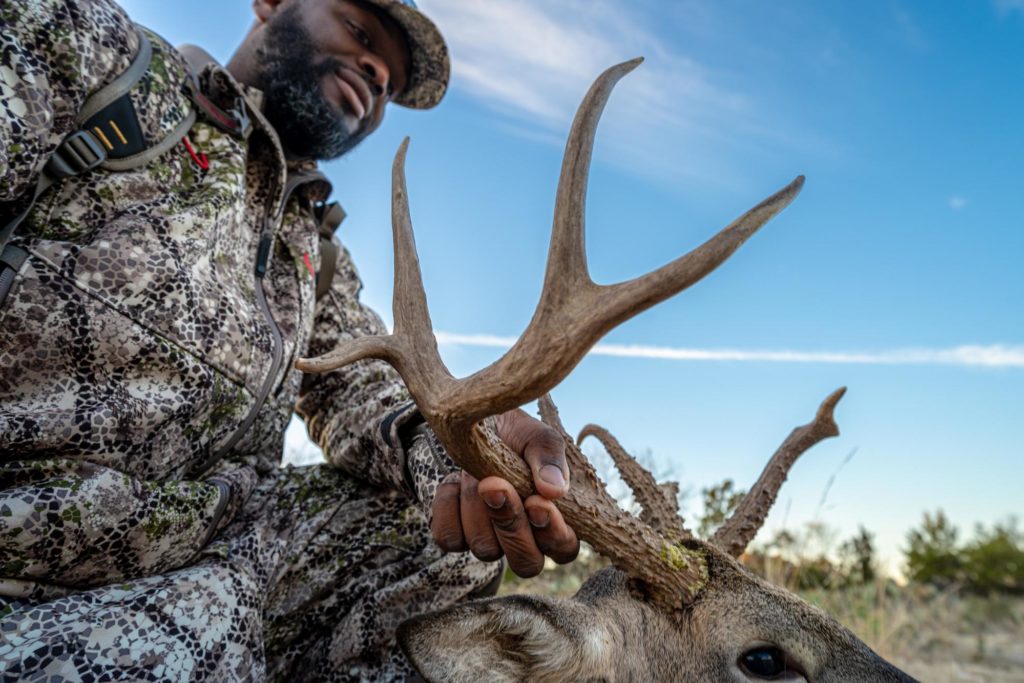
The days started and ended at the fire pit — sipping coffee in the early mornings before the hunt and sipping adult beverages in the evening. While gathered around the fire at night, veterans and volunteers told jokes, talked shit, and genuinely connected and enjoyed each other’s company. While plenty of bonding happens in the deer blinds, the fire ring brings everyone together.
Each ranch builds a sense of community, and that community comes together each evening around the fire. “This may sound selfish, but I do this for me just as much as I do it for the guys,” Gill confided one evening around the fire. “Being around these guys is part of my healing process. I’m lucky because I get to spend time with and meet new brothers and sisters multiple times a year.”
Another significant event that happened around the fire pit was the retiring of a U.S. flag, which was the culminating event of the weekend. The fire was stoked until blazing hot, and pieces of the flag were given to everyone on the ranch. They gathered around the fire and listened to the reading of the poem “My Name is Old Glory” by Howard Schnauber. After the reading, each person was given an opportunity to speak before tossing their piece of the flag into the flames.
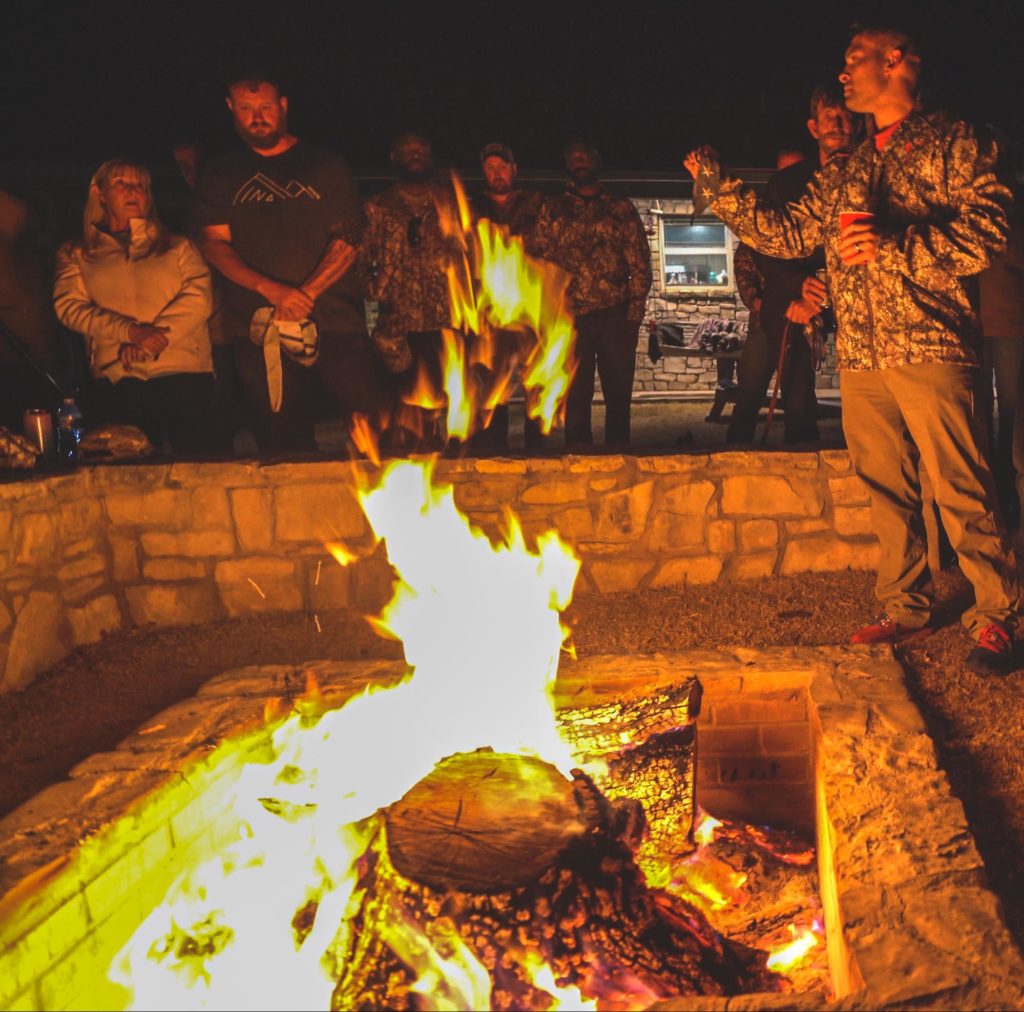
The emotional significance of the weekend was palpable during the flag retirement ceremony. Some, with tear-filled eyes, said nothing as they tossed their piece of the flag into the flames. Others named their comrades who never returned from combat, thanked the warriors for the sacrifices they made, or spoke about what it means to them to be an American.
Once each piece of Old Glory had been set ablaze, there was a moment of silence.
When it was time to leave, there was a solemnity in the air, as if no one wanted the trip to be over. The bonding and friendships developed in hunting camp are the likes of which most veterans haven’t known since combat. Men who were complete strangers five days prior were exchanging hugs, phone numbers, and making plans to meet again in the near future.
“Everyone comes from different walks of life in the military — service puts us on the same path, [and] that’s hard to find on the outside,” Chris Egbert, a participant in the 2019 hunt, said during a follow-up interview. “LSWO connected me with people that understand the struggle and, more importantly, I could instantly trust. Hell, five months later, I talk to Brian Cons (a fellow hunter from 2019) nearly every day.”
This article was originally published April 16, 2020, on Coffee or Die.



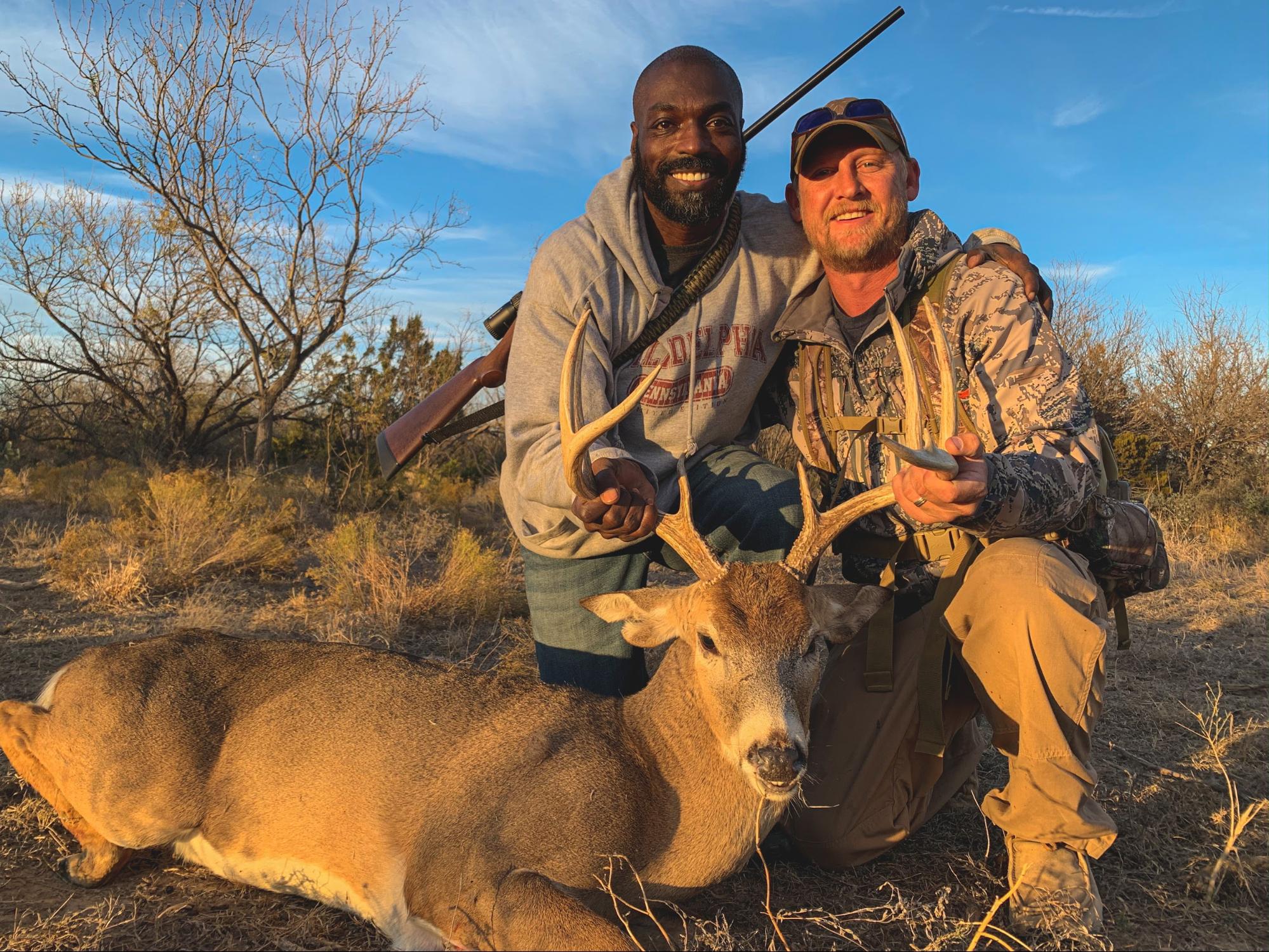

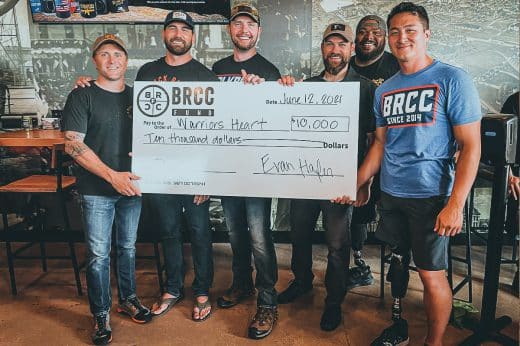
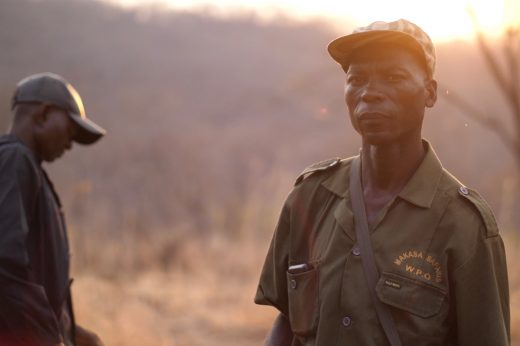


Comments